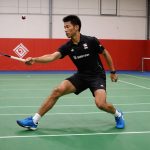Overview of Current Scouting Techniques
In the dynamic realm of UK basketball academies, scouting techniques are integral to identifying and nurturing emerging talent. Talent identification starts at the grassroots level, where scouts evaluate players in local competitions. These events are critical for unearthing potential in authentic game scenarios. Scouting at this level emphasises not just individual skills but also teamwork and adaptability under pressure.
Advanced technology now plays a pivotal role in player evaluation. UK basketball academies increasingly rely on data analytics to assess player performance, tracking a range of metrics from shooting accuracy to defensive efficiency. This approach allows scouts to make precise and informed decisions, improving accuracy in talent identification.
This might interest you : Enhancing Flexibility in UK Basketball Players: Key Strategies to Prevent Injuries on the Court
Traditional methods, such as observing physical attributes and game sense, remain indispensable. However, when combined with technology, they offer a comprehensive evaluation framework. This enables scouts to deliver higher precision in assessing a player’s potential and fit within a team structure. The fusion of conventional and modern scouting techniques ensures that UK basketball academies can cultivate a robust pipeline of talent, meeting both tactical and strategic needs.
Innovative Recruitment Strategies
Recruiting young talent in today’s world requires more than traditional methods. Embracing innovative recruitment strategies is essential to attract fresh faces.
Topic to read : Boosting Speed: Techniques for UK Basketball Players to Enhance Their First Step in Offense
Utilization of Digital Platforms
One of the most effective recruitment strategies includes leveraging social media platforms. Using platforms like Instagram, Twitter, and LinkedIn allows recruiters to reach a wider audience and engage with potential candidates where they spend most of their time. These platforms enable interactive and creative outreach, such as live Q&A sessions and virtual tours of facilities.
Community Engagement Initiatives
Active community engagement can play a significant role in identifying and nurturing young talent. Organising local events, workshops, and sports clinics helps in discovering and developing skills in a supportive environment. This approach also fosters a sense of belonging and connection to the organisation.
Partnerships with Schools and Colleges
Forming partnerships with educational institutions, such as schools and colleges, is vital for tapping into a pool of young, fresh talent. By establishing strong relationships, organisations can create programs and events that benefit both students and the community. Running basketball camps and clinics provide hands-on opportunities to assess skills while creating engagement with potential future stars. Integrating these recruitment strategies ensures a robust pipeline of upcoming talent.
Best Practices for Talent Assessment
To achieve effective talent assessment, it is crucial to comprehensively evaluate both physical attributes and performance evaluation of skills. Initially, identifying the key attributes relevant to the specific context or industry allows for a structured approach. For instance, in sports, physical fitness and agility are often priorities, whereas in technical fields, cognitive abilities may take precedence.
Although physical attributes are essential, psychological and social factors play a pivotal role in assessments. Consideration of these aspects ensures a holistic understanding of an individual’s capacity to thrive in varied environments. Evaluating qualities such as adaptability, teamwork, and communication skills provides insights into potential success beyond intrinsic talents.
Implementing standardized testing and metrics is a foundational step in aligning assessments with desired outcomes. Creating benchmarks facilitates impartial evaluations, enabling fair comparisons across candidates. Moreover, consistent use of reliable testing procedures ensures that results are valid and can be trusted to inform decision-making processes.
Ultimately, a balanced performance evaluation encompasses both tangible skills and intangible traits. Organisations focusing on these multifaceted evaluations are likely to identify talent that not only performs but also enhances the collective environment and culture.
Success Stories from UK Basketball Academies
Numerous success stories demonstrate the profound impact of UK Basketball Academies on player development. These stories are a testament to the meticulous systems in place, nurturing raw talent into professional readiness.
Case Study: Notable Talent Growth
Reflecting on a particular academy, one player’s journey stands out. Initially a novice, their dedication, combined with structured training, propelled them to national recognition. This growth underscores the academy’s ability to tailor individual development paths that hone specific skills and foster holistic growth.
Impact of Coaching on Recruitment Outcomes
Coaching excellence plays a pivotal role in transforming potential into recruitment opportunities. By forming a strong coach-player bond, academies enhance motivation and performance, greatly influencing recruitment outcomes. Coaches employ strategies centred on ethics and mentorship, ensuring that each player’s transition from aspirant to asset in the professional realm is smooth and sustainable.
Long-term Development Programs
Successful transitions to professional basketball often stem from robust long-term development programs. These platforms go beyond physical training, offering career guidance and mental conditioning. Notable academies are known for crafting environments where young talent not only thrives but also learns the nuances of the sport, equipping them for enduring careers.
Expert Opinions on Effective Scouting
In the rapidly changing world of basketball recruitment, expert insights play a crucial role in shaping scouting strategies. Interviews with seasoned coaches and scouts reveal the importance of scouting effectiveness in identifying potential talent. These experts emphasize the need to evolve scouting practices to align with the modern dynamics of the sport.
To enhance scouting effectiveness, coaches recommend integrating regular feedback loops into scouting routines. By actively seeking and incorporating feedback from diverse sources, scouts can adjust their evaluation criteria and enhance their understanding of players’ potential. This approach ensures a more holistic and accurate assessment of talent.
Additionally, experts point out that technology plays a significant role in the evolving landscape. The use of data analytics and video analysis tools has become essential to provide deeper insights into players’ skills and performance. These advancements allow scouts to identify nuances that might be missed during live observations.
Ultimately, the fusion of traditional scouting methods with modern technologies and feedback integration promises to elevate the practice of scouting, ensuring it remains relevant and effective in the fast-paced world of basketball recruitment. These expert insights serve as invaluable guides for improving scouting strategies and optimising the recruitment process.
Actionable Tips for Enhancing Recruitment Efforts
In the dynamic world of recruitment, setting clear recruitment goals and timelines is crucial for effective strategy implementation. Begin by defining what success looks like for your recruitment process. Are you aiming to fill positions quickly, improve quality of hires, or diversify your candidate pool? This clarity will help in tailoring specific recruitment tips to meet your needs.
Training staff on effective talent identification techniques is another critical step. Start by equipping your team with the necessary skills for assessing candidate suitability. This might involve leveraging technology to help identify potential talents or conducting workshops to refine interviewing skills. Emphasising continuous learning ensures that your staff remains adept at selecting top candidates.
Finally, ensure that there is a process for continuous evaluation and adaptation of recruitment strategies. Periodically review the performance of your recruitment efforts to identify areas of improvement. Utilise analytical tools to glean insights into what works and what does not. This continuous adaptation not only keeps your strategies fresh but also aligned with the ever-evolving job market needs. Adjusting strategies as needed helps build a more responsive recruitment approach that effectively meets organisational objectives.











